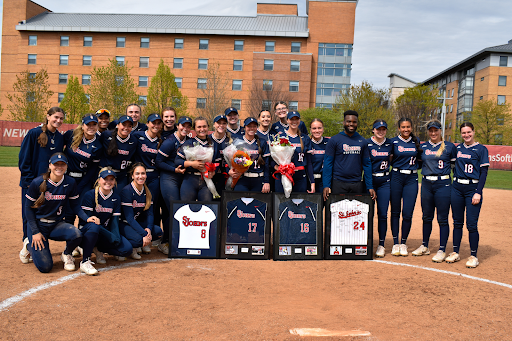When Moe Harkless climbed the stairs to the Prudential Center stage and shook hands with David Stern at the NBA Draft this past June, he became the first St. John’s basketball player since the formally known Ron Artest to be drafted into “The Association.”
With that being said, one would be hard pressed to deny that Harkless now plays at the absolute highest level of basketball.
However, the new Orlando Magic small forward is not the only former Johnnie that is currently testing the ranks of professional sports. Connor Lade, a former St. John’s soccer standout, has been a member of the MLS’s New York Red Bulls since December 2011.
Nevertheless, unlike Harkless, soccer pundits across the world will all agree that Lade is not playing at the highest level possible. Sure, the MLS is the premier tier of professional soccer in the United States, but there is a universal perception that the MLS cannot compare to the most prominent teams of Europe and South America.
Many Americans ask why the latter is true. Why doesn’t soccer in America compare with soccer overseas? The answer to that question is quite simple: the United States does not produce the same caliber of players that Europeans and South Americans do.
Now, to ask yet another question, why can’t we, one of the most athletically dominant countries in the world, produce top caliber soccer players.
Once again, the answer is oh-so-simple. In Europe, South America, and sometimes even Asia, promising players sign contracts with youth teams of professional clubs at an early age. These kids, who are in some cases forced to leave home before they finish grammar school, are sent to academies where they eat, sleep and breath soccer; with a tad bit of private schooling in between.
Take the famed FC Barcelona academy, La Masia, for example. The likes of Andres Iniesta, Gerard Pique and Lionel Messi have all graduated from the renowned soccer school. Keep in mind that all of the listed individuals are considered some of the best soccer players to ever touch a ball. However, it is also vital to remember that each one of them bypassed a traditional education to find sporting success.
That precise fact is the foremost reason why the United States cannot truly compete with traditional soccer powerhouses. We, as a society, will scoff at the idea of allowing children as young as nine leave school and pursue a career as a professional athlete; it’s just too big a risk.
It should also be noted that for every success story, there are a thousand tales of failure. Take Spanish soccer player Jorge Troiteiro, for example. He, alongside Andres Iniesta, was a standout at La Masia in the late nineties. Unfortunately for Troiteiro, though, his exceptional talent did not help him achieve the feats that Iniesta has achieved. A slight lack of focus and a bit of bad luck has seen him earn a meager paycheck at third division Spanish side, Burgos Club de Futbol, while Iniesta was recently awarded the UEFA Player of the Year Award; quite a disparity, most will say.
Moving forward, unlike young Spanish players, most up-and-coming American soccer players balance both school and sports.
Obviously, there’s absolutely no shame in that, but soccer is a game where repetition is imperative. While foreigners practice nearly everyday during their teenage years, most high-level teenage American players only practice, at most, three to four times a week.
All of that practice adds up. Why do you think the aforementioned Barcelona players pass and posses the ball with such unrivaled expertise? The answer, of course, is repetition.
Soccer is a game where time must be dedicated to find success; there’s no way around that fact.
With that said, as long as education takes a front seat to the dream of becoming a professional athlete for promising young children, the United States will never become top dog when it comes to soccer.
In a country where big risks sometimes reap tremendous rewards, soccer continues to be a risk that few are willing to take.















Us Soccer Leagues • Sep 8, 2012 at 3:54 am
Metro Sports Leagues is a great way to have fun and meet new people in the Washington D.C. metro area. Our adult leagues are coed and we offer both recreational levels for the novice player and competitive levels for the more serious athlete.